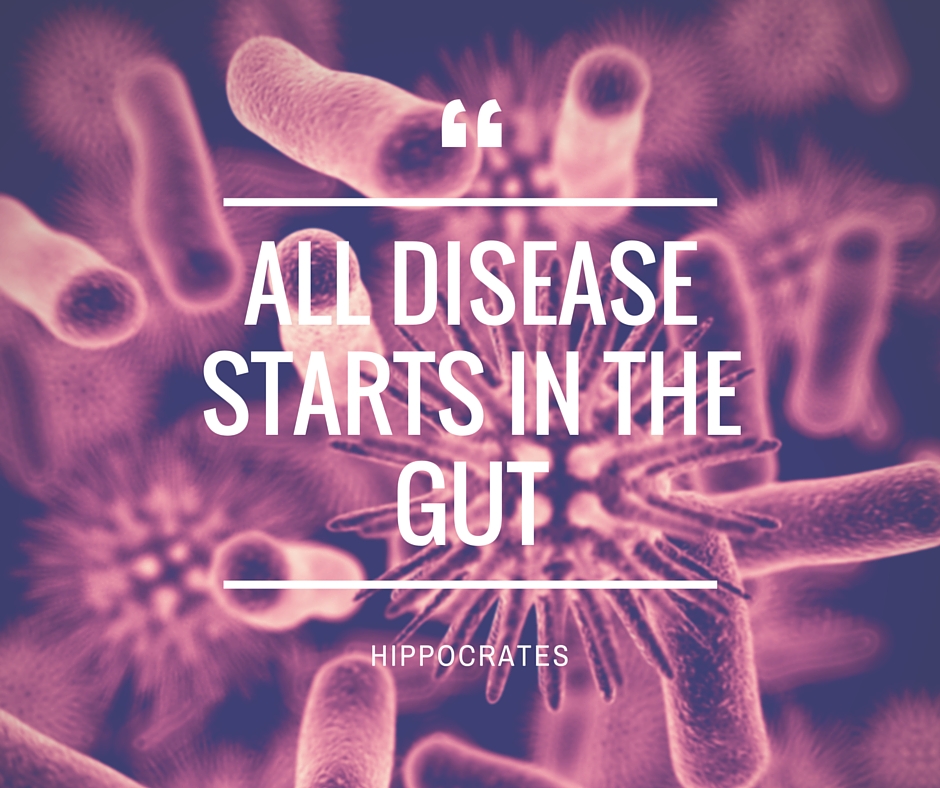 What if Irritable Bowel Syndrome (IBS) wasn't "just in your head?". This may seem revolutionary for many physicians... and people that don't have IBS. Anyone living with IBS knows it's true. Nobody wants to be bathroom bound when they try to leave the house, or have to scan a restaurant menu frantically looking for the one item that won't cause them pain or embarrassing gas within an hour. Well, it's true. Small Intestinal Bowel Overgrowth (SIBO) is estimated to be the cause of anywhere from 40-85% or more cases of IBS. Clinically, I would say that this number is even higher. Your Gut is a Garden There are several types of bacteria within the digestive system. The particular species depend on things like your genetics, your birth type (hospital, home birth, vaginal, C-section), breast versus formula feeding, your diet, medications and stress. They can change over time and the unique combination can markedly affect how you feel. It can be helpful to classify human bacteria into three categories:
Much like a garden, there are a combination of plants that you want like tomatoes, sunflowers, parsley (healthy bacteria), species that show up that can take over if not contained like mint, orange lilies (commensals) and then there are invasive weeds like bindweed, thistles (pathogenic bacteria). Every garden will have a combination of all of these. As in the human digestive system, we want the balance to be tipped in favour of the helpful species, so that the neutral species can exist in manageable amounts, and hopefully ultimately crowd out the weeds. A diligent gardener can also go a long way. Normally, the majority of bacteria within the digestive system reside within the large intestine where they work on the food you're digesting to produce Vitamins B1, B2, B6, B12 and K2 as well as other substances. Since we have 10 times as many bacterial cells in our body as we have human cells, even a small alteration in our bacterial garden can change our landscapes dramatically. Our In House Gardener: The Migrating Motor Complex (MMC) The MMC coordinates electrical wave patterns every 90-120 between meals that sweeps through the stomach and small intestine to helps propel food and bacteria from the ileum (the end segment of the small intestine) to the large intestine. In order to function properly, our body needs to have a break between meals. In SIBO, these bacteria can migrate backwards, up into the small intestine which normally has far fewer bacteria. This migration can occur with intestinal permeability, certain medications, inflammatory bowel disease (Ulcerative Colitis, Crohn's Disease), Celiac disease, and low stomach acid. Because competition is less fierce in the small intestine than in the large intestine [Read my previous blog here to review], these bacteria can settle in, replicate and grow without being crowded. This is like freshly tilling your garden and then going on vacation for two weeks only to find that your neighbour's weeds crept under the fence and have taken over. Now you have thistles that are six feet tall. The problem is that now you have bacteria existing in high amounts where they would not normally be and they are now crowding out healthy bacteria, interfering with your crop and attracting pests. The overgrowth can be a combination of healthy, commensal or pathogenic bacteria.... it doesn't really matter because you've got a forest on your hands. This overgrowth is what contributes to much of the discomfort of Irritable Bowel Syndrome. Have you ever noticed that flowers are easily pulled but weeds have deep roots? Same story here. The bacteria that takes hold likes to stick around and make a mess. It can throw off the MMC, and instead of helping to digest your food it ferments it. Fermentation is the process of converting sugars in foods to gases or alcohol, as in beer, wine and sourdough bread. Our bodies are not designed to ferment, and when we do, we bloat. We get gas pains and "I swear I'm not 3 months pregnant!" food babies after eating. Because the food is not breaking down properly, we also get intestinal permeability. We are more likely to have other problems too:
Sound familiar? In our next blog post, we are going to be covering the key signs to watch out for to tell if you have SIBO and what you can do about it. If you found this post helpful, please share with your friends and family! In happy digestive health, Dr. Keila
References
0 Comments
Leave a Reply. |
Top 75 Naturopath Blogs & Websites For Naturopathic DoctorsAuthorDr. Keila Roesner is a Naturopathic Doctor. When not treating patients she is also an enthusiastic barefoot-strolling, music-loving, yoga-doing kitchen wiz - who also happens to be a wrestling fan. Categories
All
|
Let us take you from hormonal to whole.
|
Dr. Keila Roesner, BHSc ND
Naturopathic Doctor, Hormone Warrior and Your Wellness Cheerleader 247 Church Street, Stratford ON N5A 2R7 (519) 273-0900 [email protected] |
|




 RSS Feed
RSS Feed